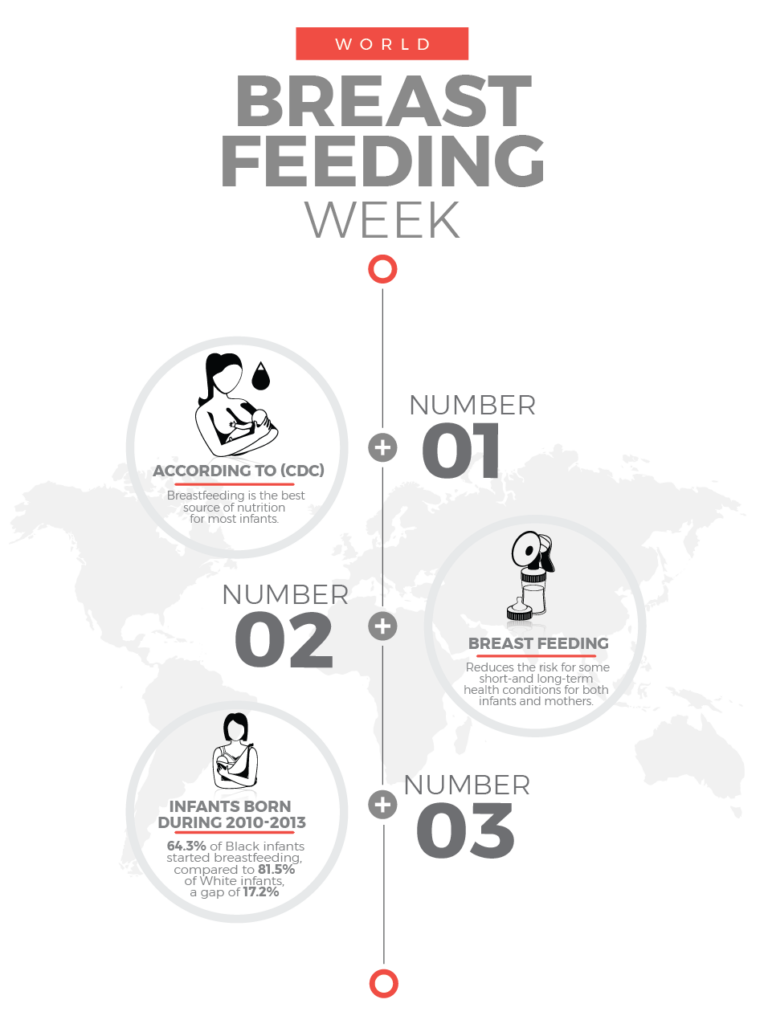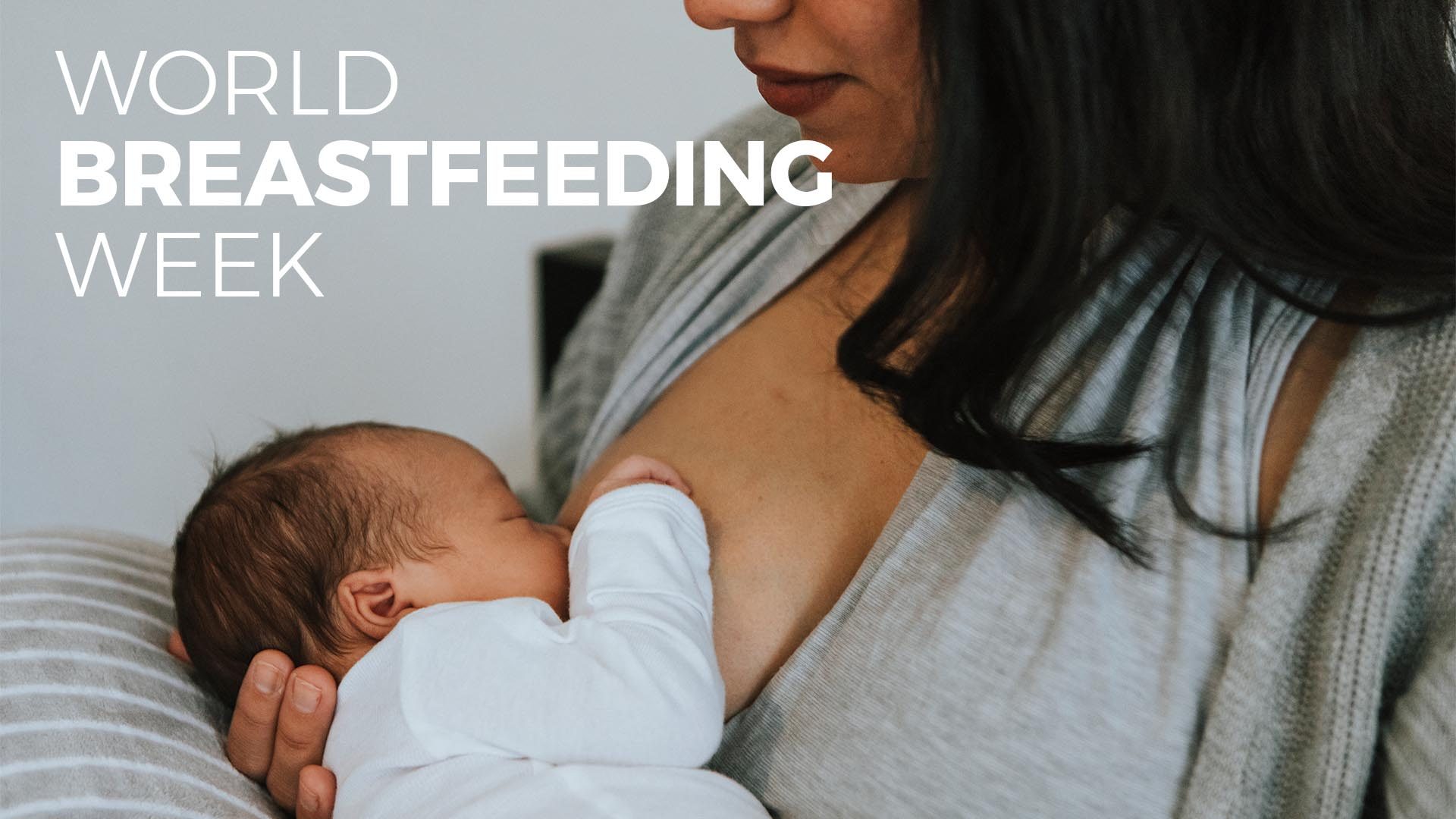
In observance of World Breastfeeding Week, August 1-7, learn about our nation’s progress in promoting and supporting breastfeeding and the work that is still needed.
Breastfeeding is the best source of nutrition for most infants. It can also reduce the risk for some short- and long-term health conditions for both infants and mothers.
The percentage of babies who start out breastfeeding increased from 73% among babies born in 2004 to 83% among babies born in 2014. Babies are also breastfeeding for longer; 55% of U.S. babies born in 2014 were being breastfed at 6 months, up from 42% in 2004. Despite these overall increases, racial disparities between black and white infants persist.
A recent CDC study, published in the Morbidity and Mortality Weekly Report (MMWR), describes how breastfeeding rates continue to differ between non-Hispanic (NH) black and white infants within states.
- Among infants born during 2010–2013, 64.3% of NH black infants started breastfeeding, compared to 81.5% of NH white infants, a gap of 17.2 percentage points.
- Most of the 34 states included in the study reported lower rates of breastfeeding initiation rates among NH black infants than among NH white infants.
- In 14 states (primarily in the South and Midwest) the percentage of NH black infants who ever breastfed was at least 15 percentage points lower than among NH white infants.
- NH black infants also had significantly lower rates than NH white infants of exclusive breastfeeding at 6 months and breastfeeding for 12 months.
Many factors influence a woman’s decision to start and continue breastfeeding. Some barriers disproportionately affect black women, such as:
- Returning earlier to work.
- Not receiving enough information about breastfeeding from providers.
- Lack of access to professional breastfeeding support.
Source: www.cdc.gov
